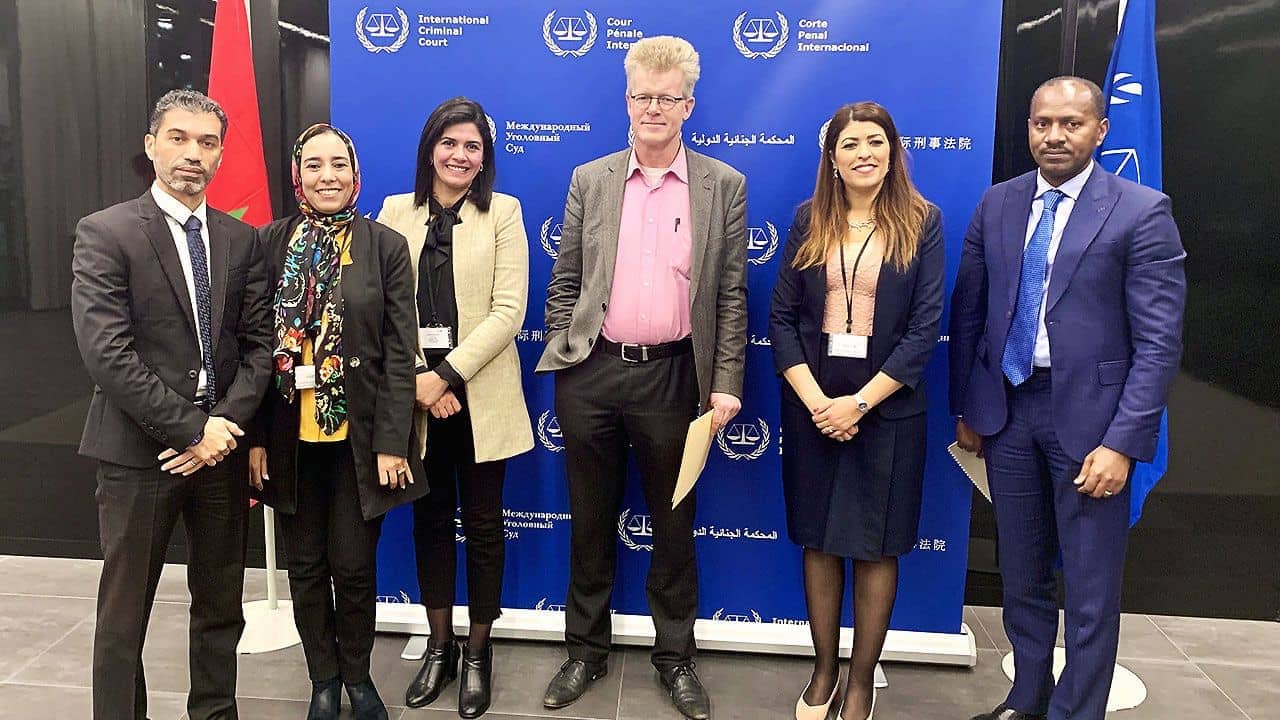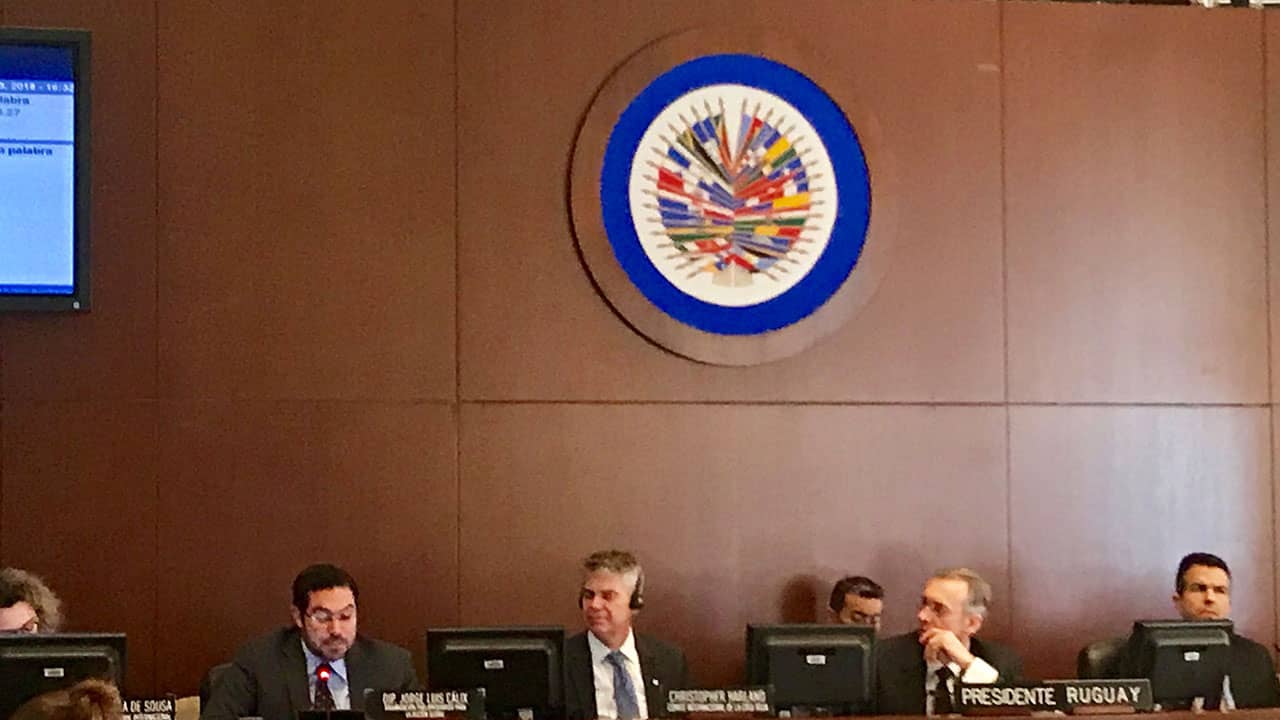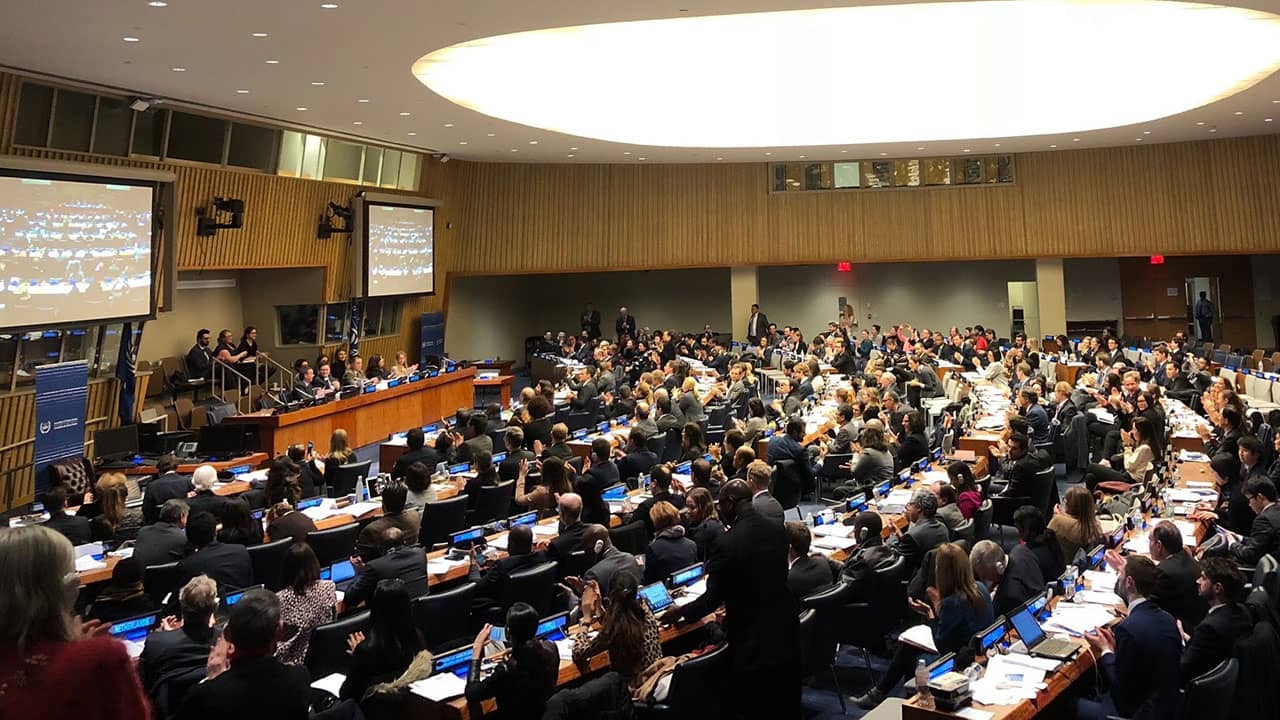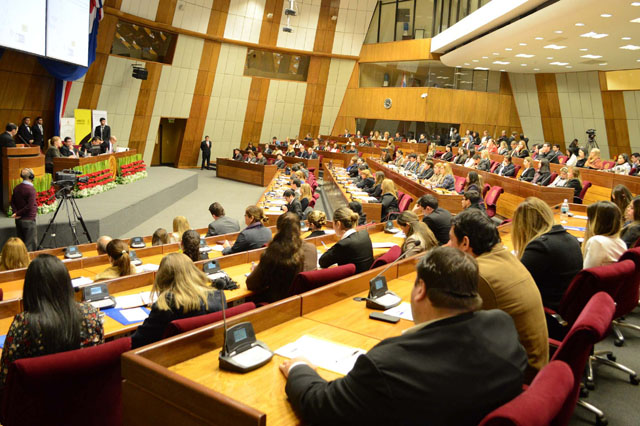PGA has been working in Panama since 2000 with the support of a group of very proactive Members who are fully committed to the fight against impunity.
Upon request of its Members, PGA provided technical support to assist in the domestic implementation of the Rome Statute within the Panamanian national legal order, a step that is considered vital to demonstrate Panama’s support to the fight against impunity by providing for genuine domestic investigations and prosecutions of international crimes.
To this effect as well as to strengthen national mechanisms that will facilitate cooperation with the ICC, PGA's Secretariat is engaged in continuous consultations with parliamentarians in Panama as well as other relevant stakeholders.
Rome Statute
Panama signed the Rome Statute on 18 July 1998 and deposited its instrument of ratification on 21 March 2002.
Kampala Amendments of 2010
A delegation of Panama attended the 2010 Review Conference and joined the consensus to adopt the two Kampala Amendments, but has not yet ratified them.
At the opening of the eleventh session of the Assembly of States Parties (ASP) in The Hague on 14 November 2012, Panama stated its concrete commitment to ratify the amendments on the crime of aggression. Panama reiterated its commitment to approve the amendments to the Rome Statute “in the near future” during the 22nd session of the Human Rights Council Universal Periodic Review (UPR) in May 2015.
On 6 December 2017, Panama ratified the Kampala Amendments to the Rome Statute on crime of aggression and war crimes, becoming the 35th ratifying State. This development was a result of the active engagement of PGA members in Panama, and PGA’s advocacy, including through the Montevideo annual Sub- Regional Parliamentary seminars on accountability for international crimes and the Rule of Law.
Status on the domestic implementation of the Rome Statute
The Implementing Legislation Bill was completed in 2006, with support from PGA Members, key movers behind the ratification process. Panama approved the new Criminal Code including most of the crimes under the Rome Statute as well as complementarity provisions in May 2007.
Legislation on cooperation with the ICC has not been enacted to date. However, PGA and its members have been working in the process of developing a cooperation mechanism. In 2013, then-ambassador of Panama to the Netherlands, Dr. José M. Téran, started inquiring into Panama’s implementation status. When he became aware of the legislative deficiencies of Panama with regard to the ICC he established contact with PGA. This was the start of the elaboration of a draft bill, which was later presented to and welcomed by the Panamanian authorities. To give added strength to the process the Secretary General of the Attorney General’s Office in Panama visited the ICC in the Hague and a seminar was organized in Panama, which was well attended and benefited of the presence of the President and Prosecutor of the ICC. The ambition of Panamanian legislators to support the ICC transcended national borders, and they tried to maximize the impact of their efforts by inviting prosecutors and attorneys from the Central American region with the aim of inspiring them to take up similar legal reform initiatives and boosting the ratification process in El Salvador. Unfortunately, the elections in 2014 interrupted the legislative reform project and after the elections the project got relegated to the margins of the political process due to a lack of support. In December 2015, Dr. José M. Téran presented an opinion article (in Spanish) on Panama’s lack of implementation legislation, in which he also highlights the support and assistance that Panama has received from PGA and the important role PGA has played in the conception of a draft cooperation bill.
Agreement on Privileges and Immunities of the Court (APIC)
Panama signed the APIC on 14 April 2003 and ratified it on 16 August 2004.
Additional Agreements
Panama signed a Bilateral Non-surrender agreement (BIA) proposed by the United States regarding the (non-)surrender of persons to the International Criminal Court on 23 June 2003, which entered into force on 6 November 2003.
Progress and PGA Action
In June 2002, H.E. Dip. José Ismael Herrera (first Vicepresident) Dip. Felipe Cano (President of the Human Rights Committee) and Dip. Marco Ameglio Samudio (member of the Foreign Relations Committee and PGA member), participated in the Euro-Ibero American Conference on the Ratification and Implementation of the International Criminal Courts (ICC) Statute, held in Madrid.
In November 2002, Dip. Marco Ameglio Samudio, PGA Member, participated in the I session of PGA's Consultative Assembly of Parliamentarians for the ICC and the Rule of Law held in Ottawa as well as in the II session of PGA's Consultative Assembly of Parliamentarians for the ICC and the Rule of Law held in New York in September 2003.
In May 2007 Panama adopted a revision to its criminal code which incorporates the Rome Statute crimes but without procedures to ensure cooperation with the ICC itself.
In October 2008, Dip. Ricardo Atencio and Dip. Manuel Zambrano, former PGA Member, participated in the V session of PGA’s Consultative Assembly of Parliamentarians for the ICC and the Rule of Law held in Santo Domingo. These sessions offered the opportunity to discuss and debate the most serious political challenges to the universality and effectiveness of the Rome Statute system.
In December 2010, PGA member Dip. Blandón led an initiative to ensure that Panama would have legislation to fully cooperate with the ICC. This initiative was inspired by his participation in PGA events and bilateral talks with PGA President Dip. Minou Tavarez Mirabal (Dominican Rep.). With technical assistance provided by PGA, Dip. Blandón and his colleagues of the Legislative Affairs Committee committed to deposit the draft law on Cooperation with the ICC in 2012, but regretfully it did not find support from other parliamentarians.
Additionally, to give fresh impulse to the drafting process of implementation legislation, on 5-7 September 2011, PGA organized the PGA Mission to Central America – Ratification of the Rome Statute by El Salvador and Technical Assistance on Implementing Legislation by Dominican Rep. and Panama (San Salvador, Panama City and Santo Domingo).
In April 2014, upon request by the Ambassador of Panama to The Netherlands, Amb. José M. Terán, PGA provided technical assistance for the drafting of an Amendment Bill to the Criminal Code in order to improve the language related to the core crimes of the Rome Statute and of a Cooperation Bill that the Attorney General was planning to present to Parliament. The possibility of organizing a Seminar on Cooperation with the ICC and Implementation of the Rome Statute in Central America and the Caribbean region was considered but postponed due to the election process. After technical assistance had been provided to the Panamanian legislators, the Secretary of Foreign Affairs of the Attorney General Office met with the Registrar of the ICC on 19 March, 2014, to discuss further cooperation with the Court.
In December 2014, PGA Member Dip. Marylin Elizabeth Vallarino Bartuano de Sellhorn, participated in the VIII session of PGA’s Consultative Assembly of Parliamentarians for the ICC and the Rule of Law held in Rabat. The Consultative Assembly afforded those present the opportunity to consider and discuss strategies to expand the universality of the ICC. After the change of government, at the beginning of 2015, PGA presented the cooperation legislation to the new Ambassador of Panama to The Netherlands who promised to forward the documents to the Ministry of Foreign Affairs for their review and possible presentation to Parliament.
On 8-9 October 2015, PGA member Dip. Nubia Starnes participated in the annual Montevideo Sub-regional Meeting on the Rome Statute of the International Criminal Court: A Commitment to Democracy and the Rule of Law in the Latin America Region, in which the participants were able to interact with experts on the ratification and implementation of the Kampala Amendments, respectively on war crimes and the crime of aggression.
Other relevant information:
On 17 July, 2013 Panama Co-signed a Communiqué on the International Criminal Justice day calling for the UN to continue supporting ad-hoc tribunals established by the Security Council. Also, it recognizes the role of the ICC in maintaining international stability, praises its proceedings as impartial and unbiased, and invites other countries to accede to the Rome Statue.
Organization of American States
As a member of the Organization of American States, Panama has supported the promotion of the International Criminal Court through the adoption of an annual resolution by the General Assembly of the OAS as well as by the holding of an annual high-level work meeting within the Political and Juridical Affairs Committee of the OAS. PGA members have been invited at numerous occasions to this meeting. For more information on the work of PGA within the OAS, click here.
Human Rights Council Universal Periodic Review:
During the first UPR cycle, Panama received no recommendations related to the Rome Statute. During the second UPR cycle Panama accepted the recommendations made by Montenegro, Spain, Slovenia and Portugal to fully align its national legislation with the Rome Statute of the ICC.








